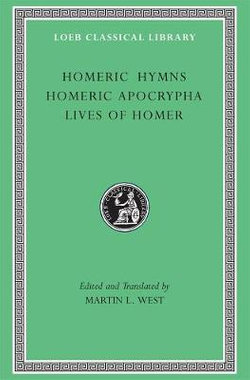Homer
We know very little about the author of The Odyssey and its companion tale, The Iliad. Most scholars agree that Homer was Greek; those who try to identify his origin on the basis of dialect forms in the poems tend to choose as his homeland either Smyrna, now the Turkish city known as Izmir, or Chios, an island in the eastern Aegean Sea. According to legend, Homer was blind, though scholarly evidence can neither confirm nor contradict the point.
The ongoing debate about who Homer was, when he lived, and even if he wrote The Odyssey and The Iliad is known as the "Homeric question." Classicists do agree that these tales of the fall of the city of Troy (Ilium) in the Trojan War (The Iliad) and the aftermath of that ten-year battle (The Odyssey) coincide with the ending of the Mycenaean period around 1200 BCE (a date that corresponds with the end of the Bronze Age throughout the Eastern Mediterranean). The Mycenaeans were a society of warriors and traders; beginning around 1600 BCE, they became a major power in the Mediterranean. Brilliant potters and architects, they also developed a system of writing known as Linear B, based on a syllabary, writing in which each symbol stands for a syllable.
Scholars disagree on when Homer lived or when he might have written The Odyssey. Some have placed Homer in the late-Mycenaean period, which means he would have written about the Trojan War as recent history. Close study of the texts, however, reveals aspects of political, material, religious, and military life of the Bronze Age and of the so-called Dark Age, as the period of domination by the less-advanced Dorian invaders who usurped the Mycenaeans is known. But how, other scholars argue, could Homer have created works of such magnitude in the Dark Age, when there was no system of writing? Herodotus, the ancient Greek historian, placed Homer sometime around the ninth century BCE, at the beginning of the Archaic period, in which the Greeks adopted a system of writing from the Phoenicians and widely colonized the Mediterranean. And modern scholarship shows that the most recent details in the poems are datable to the period between 750 and 700 BCE.
No one, however, disputes the fact that The Odyssey (and The Iliad as well) arose from oral tradition. Stock phrases, types of episodes, and repeated phrases such as "early, rose-fingered dawn" bear the mark of epic storytelling. Scholars agree, too, that this tale of the Greek hero Odysseus's journey and adventures as he returned home from Troy to Ithaca is a work of the greatest historical significance and, indeed, one of the foundations of Western literature.



Share This Book: